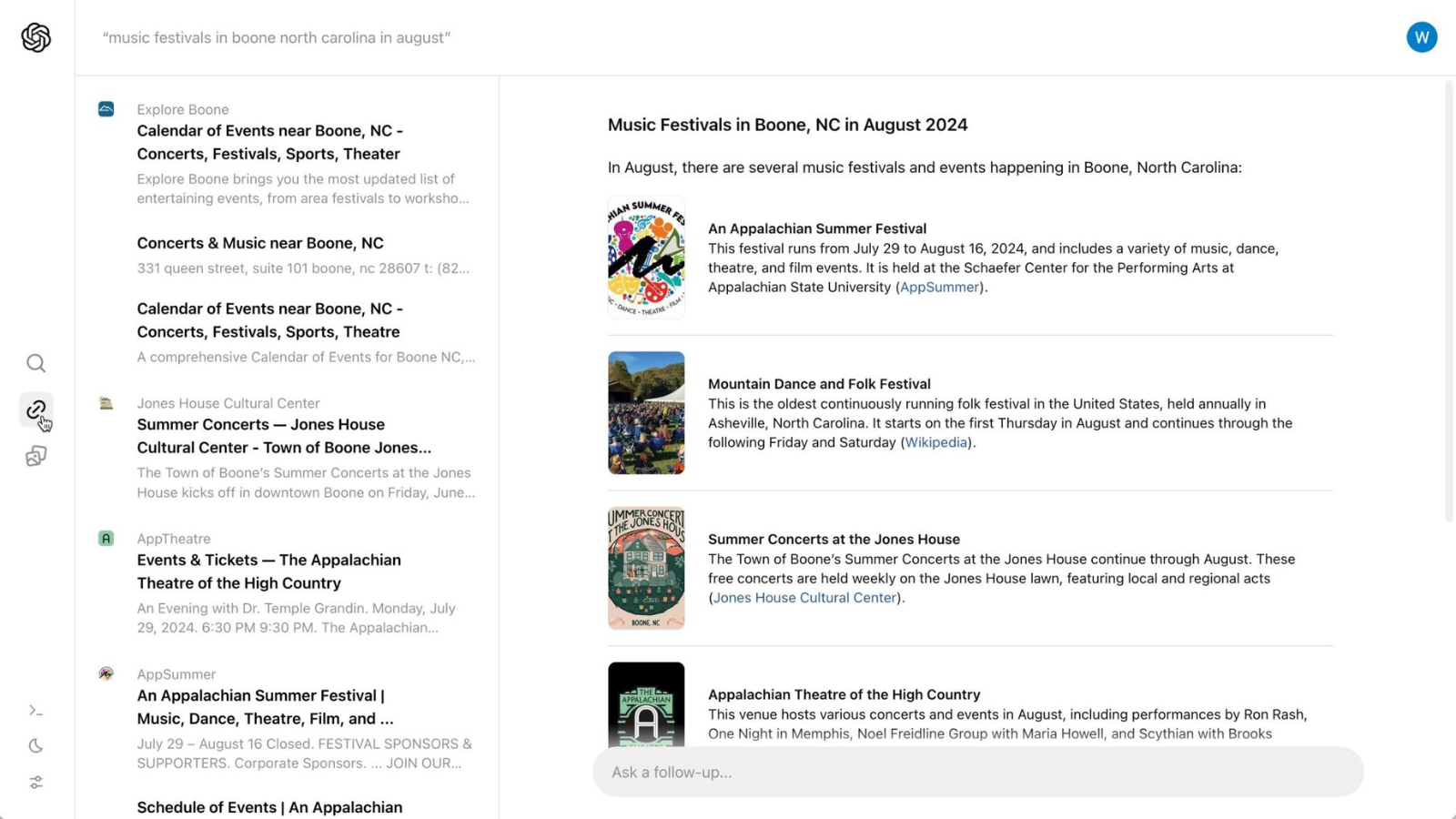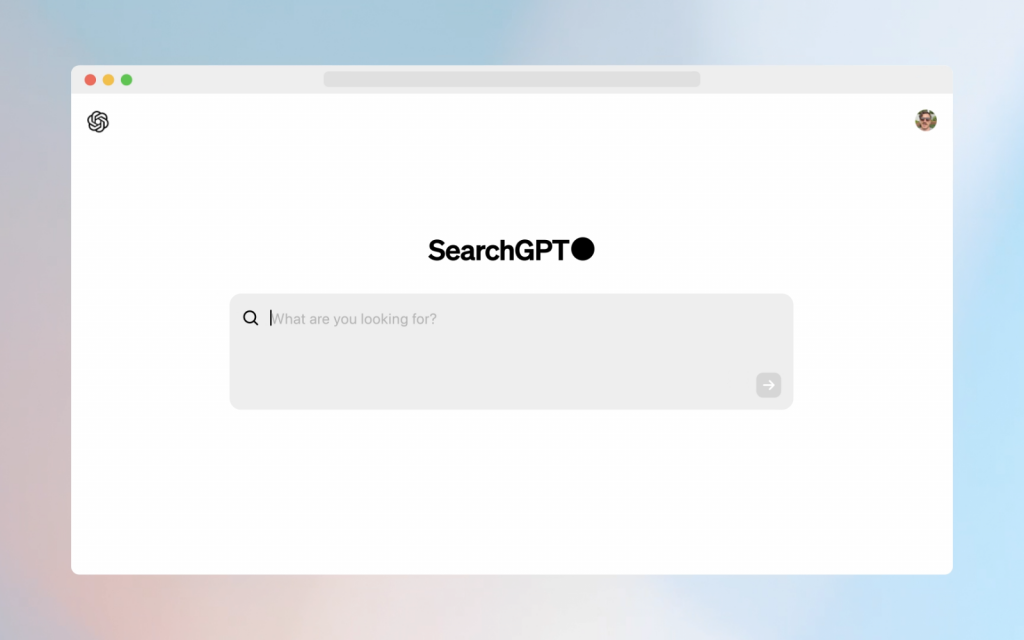Considering that nobody has yet been able to successfully challenge Google’s Search dominance, our hopes aren’t all that high that OpenAI’s newly announced SearchGPT – a “temporary prototype” engine featuring access to information from “relevant sources” across the web, all in real-time — can take on Google just yet.
“Designed to give you an answer” is OpenAI’s mantra in the build-up to SearchGPT’s launch, which is, unfortunately, limited to a very select number of users while OpenAI tests its viability in the market (you can hit up the waitlist here). The best features will eventually be mixed in with ChatGPT, according to the company.
Aaaaand in this corner, SearchGPT!

Where a traditional search engine, such as Google, may have already sold the top result of any search to the highest bidder, OpenAI’s SearchGPT does away with all that and focuses on results. That’s the idea, anyway. Even Google once sought to promote its ‘Don’t be evil’ clause, so we’ll take OpenAI’s promises with a pinch of salt.
But if OpenAI can continue to offer those features available via the engine’s prototype model, it might just stand a chance of slaying the dragon that is Google Search. Perform a search on SearchGPT as you normally would, and rather than receiving a swathe of links, you’ll instead get short summaries of the ‘best’ results, with an accompanying link to the original article.
Better yet, it’ll even understand follow-up questions beyond the initial search. One example shows a search for “Best tomatoes to grow in Minnesota” before SearchGPT throws out answers like ‘Early Girl’ or ‘Celebrity’. When a user follows that up by asking “Which of these can I plant now?” SearchGPT provides a well-thought-out answer that saves the need for scouring through useless anecdotes and as many ads.
Read More: Google’s use of AI to power search shows its problematic approach to organizing information
“Sam and the truly talented team at OpenAI innately understand that for AI-powered search to be effective, it must be founded on the highest-quality, most reliable information furnished by trusted sources. For the heavens to be in equilibrium, the relationship between technology and content must be symbiotic and provenance must be protected,” said Robert Thomson, CEO of News Corp.
OpenAI powers SearchGPT through its GPT-4 language models and will only be available to 10,000 users as it traverses this prototype phase, says Kayla Wood, an OpenAI spokesperson speaking with The Verge. It also noted that OpenAI had partnered with publishers directly to build SearchGPT, such as The Wall Street Journal, The Associated Press, and Vox Media.
These publishers, along with all the rest, will be able to “manage how they appear in SearchGPT, so publishers have more choices.” OpenAI isn’t exactly clear on what that means, but we’d speculate that OpenAI is laying the groundwork for eventually altering and boosting certain search results, ala Google.




